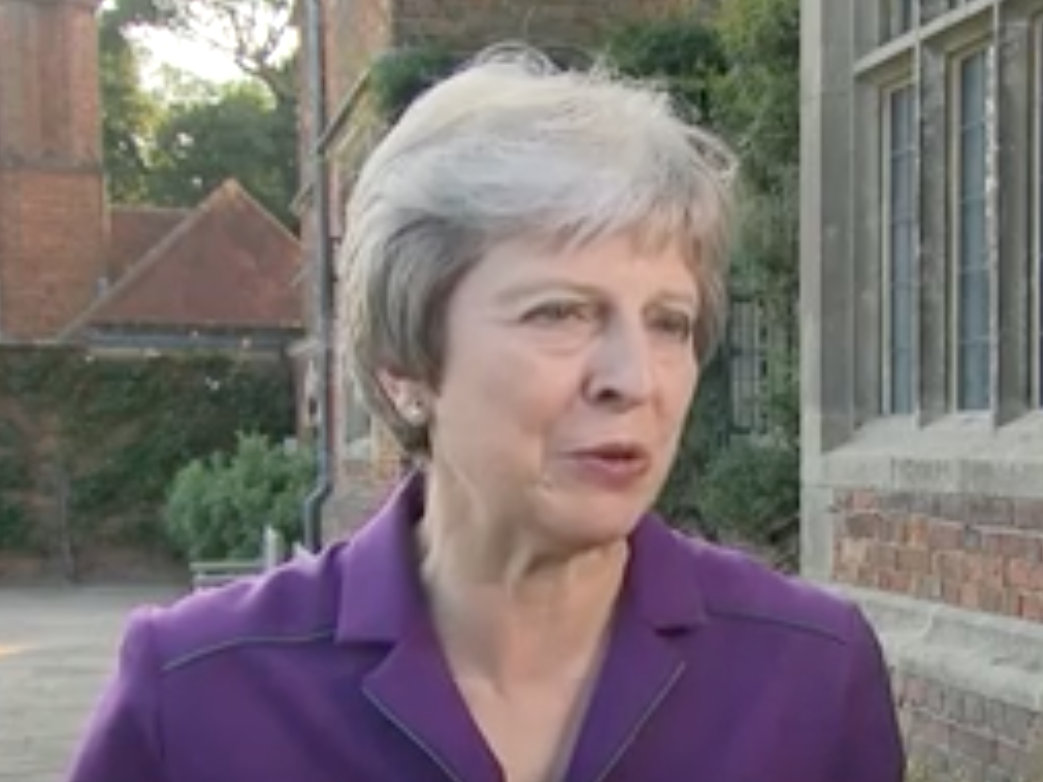Theresa May’s big gamble is that the EU will now give her what she wants
The two big issues for the next stage of the Brexit negotiations are money and immigration


Your support helps us to tell the story
From reproductive rights to climate change to Big Tech, The Independent is on the ground when the story is developing. Whether it's investigating the financials of Elon Musk's pro-Trump PAC or producing our latest documentary, 'The A Word', which shines a light on the American women fighting for reproductive rights, we know how important it is to parse out the facts from the messaging.
At such a critical moment in US history, we need reporters on the ground. Your donation allows us to keep sending journalists to speak to both sides of the story.
The Independent is trusted by Americans across the entire political spectrum. And unlike many other quality news outlets, we choose not to lock Americans out of our reporting and analysis with paywalls. We believe quality journalism should be available to everyone, paid for by those who can afford it.
Your support makes all the difference.Theresa May is better at politics than some people think. It is not much of an accolade, but it will do for the moment. Like James Callaghan in 1976 she is in a weak position, with no majority in parliament and a deep ideological split in her cabinet. But like Callaghan, she forced her ministers, through attrition by meetings, to agree with the policy she started with. And not one resigned.
I was told some weeks ago that “Boris has given up”, that he would try “one last push”, but that he felt Michael Gove had abandoned him again. So it proved. When Johnson assembled a caucus of seven Eurosceptic ministers at the Foreign Office on the eve of Chequers it was clear that they were not united behind an alternative to the prime minister’s plan.
At Chequers, Gove was part of the prime minister’s supportive chorus, having already made clear that he thinks the important thing is to get out of the EU and argue about the details later. So that was that.
Theresa May’s critics have accused her of wasting time. Every month that she allowed her cabinet divisions to run on was a month that couldn’t be used to negotiate with the EU. But there is another interpretation, which is that she has used the delay to force her cabinet colleagues to come to terms with reality, while the EU would never make meaningful concessions until the last moment anyway.
Until now she has been cautious and incremental, and it has worked, but now she is taking a big risk. Her gamble is that, having united her cabinet behind a position that has already been rejected by the EU, it will now give her most of what she wants.
There are two big issues for the next stage of the negotiations. One is money – but that is probably always negotiable. The other is immigration – which is what we have to call the free movement of people if we want to find out what people really think of it.
These are the two prices that the EU will demand for May’s plan. Its position has always been that we are welcome to be part of the EU single market, as Norway is and Switzerland kind of half is and half isn’t, provided we pay a cash subscription and accept free movement.
As I say, a cash payment is a difference that can be split. It was notable that the language from Chequers was the promise to “end vast annual payments to the EU budget”. Vast payments will be ended; large payments might not be.
The difficult question is that of immigration. Here the Chequers statement faced both ways, promising to “end free movement, giving the UK back control over how many people enter the country”, but also to ensure “UK and EU citizens can continue to travel to each other’s territories, and apply for study and work”. They can “apply”, but how many would be granted permission and on what terms will be the subject of intense negotiation rather late in the day.
And it was on this subject that the most interesting exchange took place at Chequers. Sajid Javid, the home secretary, thought he obtained a guarantee from the prime minister that she “would not be offering preferential rights to live and work here to EU citizens”, according to Robert Peston, ITV’s political editor.
That means Javid is pressing for a more restrictive immigration policy, and a more “Brexity” position in the next great cabinet split.
As I say, interesting, because what happens if the EU refuses to budge and forces the UK to choose between Norway, with free movement, or Nothing? I have always assumed that parliament would rather have free movement than no deal, but that would need a prime minister prepared to make that deal, and I don’t think that could be Theresa May or Sajid Javid.
Once again, I have to admit that I have no idea how this one will play out.
Join our commenting forum
Join thought-provoking conversations, follow other Independent readers and see their replies
Comments